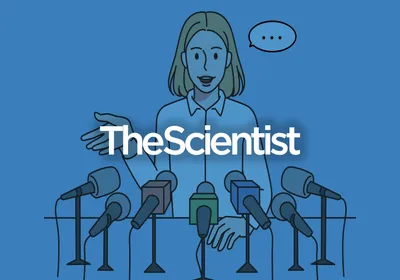 UCS panel at the AAAS annual meeting in Boston (left to right: Gretchen Goldman, John Holdren, Jane Lubchenco, Lewis Branscomb, Amy Luers, Andrew Rosenberg)BEN ANDREW HENRYFifteen minutes before a panel discussion entitled “Defending Science and Scientific Integrity in the Age of Trump,” listeners had already filled the rows of seats; newcomers stood shoulder to shoulder against the back wall or sat cross-legged in the walkways. The discussion, held Saturday (February 18) and organized by the Union of Concerned Scientists (UCS), was one of the more overtly political events during last week’s American Association for the Advancement of Science (AAAS) 2017 Annual Meeting in Boston, the theme of which was “Serving Society Through Science Policy.”
UCS panel at the AAAS annual meeting in Boston (left to right: Gretchen Goldman, John Holdren, Jane Lubchenco, Lewis Branscomb, Amy Luers, Andrew Rosenberg)BEN ANDREW HENRYFifteen minutes before a panel discussion entitled “Defending Science and Scientific Integrity in the Age of Trump,” listeners had already filled the rows of seats; newcomers stood shoulder to shoulder against the back wall or sat cross-legged in the walkways. The discussion, held Saturday (February 18) and organized by the Union of Concerned Scientists (UCS), was one of the more overtly political events during last week’s American Association for the Advancement of Science (AAAS) 2017 Annual Meeting in Boston, the theme of which was “Serving Society Through Science Policy.”
During the UCS panel on Saturday, the mood of the crowd—which erupted occasionally into cheers—reflected a political energy that enlivened the conference, coming on the heels of a tumultuous first month for the administration of President Donald Trump.
The panel began by enumerating the threats that scientists and science advocates believe could be coming their way during the next four to eight years.
John Holdren, chief science advisor to former President Barack Obama and former director of the White House Office of Science and Technology Policy, said that President Trump’s interest in expensive projects, combined with his promises to lower taxes would likely require slashing research funding in order to balance the books.
“When discretionary spending is threatened, R&D tends to be the first to ...

















